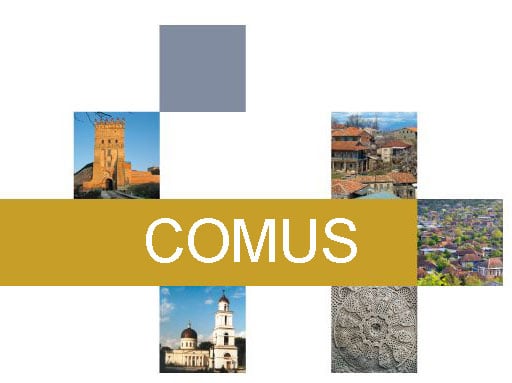COMUS: Issues at stake

 COMUS addresses the difficulties faced by small and medium-sized historic towns in Armenia, Belarus, Georgia, Republic of Moldova and Ukraine in maintaining a balance between the authenticity of their rich heritage and the requirements for sustainable growth:
COMUS addresses the difficulties faced by small and medium-sized historic towns in Armenia, Belarus, Georgia, Republic of Moldova and Ukraine in maintaining a balance between the authenticity of their rich heritage and the requirements for sustainable growth:
- Social and economic development initiatives no longer lie exclusively in the hands of central government, but more and more with the private sector and local stakeholders;
- There is a lack of up-to-date efficient town planning strategies, and too few urban protection zones, which reduces the effective control on new development and construction;
- Small, and fragile towns have suffered from depopulation, neglect and lack of investment to the point where the historic environment is fast deteriorating;
- Civil society is not always sufficiently developed, and inhabitants are not systematically consulted in decision-making processes related to the development of their living environment;
- On-going urban interventions are mainly based on sectorial strategies, and as such present only partial responses to complex development problems.
The issues at stake go beyond simple conservation and restoration of built heritage, and embrace the need to encourage and facilitate heritage rehabilitation through innovative and social inclusion projects: this means providing new uses and new possibilities for the population, and building communities by using inter-cultural dialogue and democratic stakeholders’ participation.
COMUS’ first main target group is therefore the communities, which include a variety of stakeholders: mayors, local government officials, local specialists in the municipal institutions, local professionals and experts, civil society as a whole, including the inhabitants and all those bodies representing specific or collective interests in the historic cores of the towns, and in particular those considered as the “developers”. COMUS is about increasing the cooperation and synergies between these people with a view to convincing them that heritage can generate new development processes. There are multiple advantages over the long term in encouraging local development approaches based on open dialogue between all members of the community and their participation in decision-making processes, where each has a specific role to play and where responsibilities are clearly shared as part of a new good governance. This awareness-raising is a determining factor of social cohesion insofar as it can help consolidate the values and enhance rich diversity which makes the community unique.








